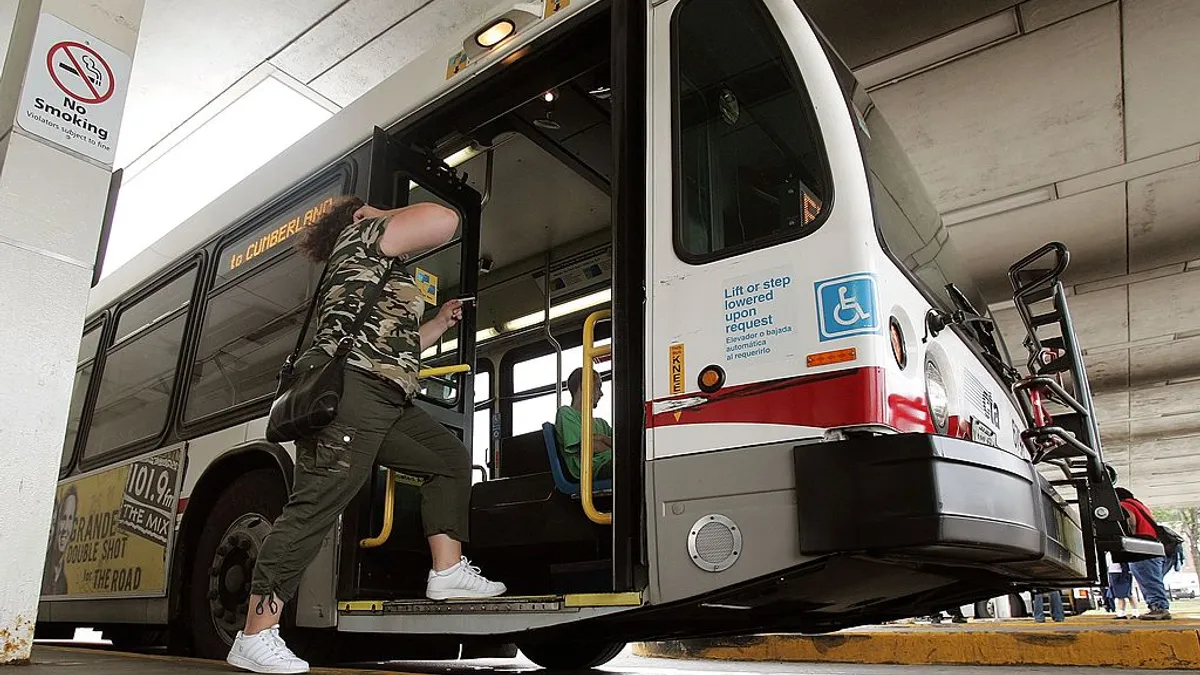Dive Brief:
- The city of Chicago launched of a pilot program to reward community-driven projects that encourage healthy, sustainable and equitable development near transit.
- The $135,000 Equitable Transit-Oriented Development (ETOD) program will use micro-grants to support up to 10 community projects that enhance equity-related aspects of development. The pilot is part of a broader ETOD plan designed to improve the density of development and housing near transit stations in historically Black communities across the city's South and West sides.
- The pilot and ETOD plan are part of the city’s broader goals to address racial equity. "The way we see it, ETOD is a strategy that can help us tackle racial injustices, the climate crisis and the wealth and health disparities that we see in the city," said Juan Sebastian Arias, deputy director of policy for the city of Chicago.
Dive Insight:
Cities have encouraged more sustainable transportation use by prioritizing transit-oriented development (TOD) — or building housing and retail around transit hubs. However, that new development can also lead to higher housing prices and the displacement of low-income populations, a phenomenon that's been described as "transit-induced gentrification."
"For too long, minority communities have been designed out of access to opportunities while other communities have garnered the benefits of publicly funded investments," said Ellen Partridge, policy and strategy director for the Chicago-based Shared-Use Mobility Center. The pilot, Partridge added, "flips that history on its head and centers racial equity in the development of centers that incorporate transportation, housing and economic development."
Chicago first adopted TOD policies in 2013 to allow transit-served developments to eliminate parking and add density. Since then, however, approximately 90% of the 220 projects that have qualified under the policies have been either downtown or on the North and Northwest sides, which are largely White and affluent areas of the city.
A data analysis also found that development sites near transit stations that are eligible for TOD but have not been improved are 40% more likely to be in areas with Black and Brown populations. Meanwhile, TOD-related construction from 2012 to 2017 often resulted in adjacent blocks seeing a decrease in Black residents and an increase in White residents.
Arias said the pilot is part of an attempt to ensure all Chicagoans can benefit from "healthy and affordable accessible development around transit." The pilot program could fund various efforts like sidewalk and infrastructure improvements, aid for small businesses or public art around transit stops.
The effort — funded by project partners Elevated Chicago and Enterprise Community Partners — will also encourage community groups to engage in a process that Arias said private developers can often dominate. Projects that include a community ownership element will be eligible for larger grants of $20,000 to reward investments in the community.
The pilot will also recognize projects around high-capacity bus corridors, not just those around train stops. The pilot can reward hubs that "envision transportation more broadly," especially by including car-sharing as a fleet-based or peer-to-peer service, said Partridge of the Shared-Use Mobility Center. The pilot will also emphasize transit accessibility for people with disabilities, which has been a lingering problem for the Chicago Transit Authority.
The ETOD pilot program also comes on the heels of Mayor Lori Lightfoot declaring racism to be a public health crisis in Chicago and following the city's hiring of a new chief sustainability officer who aims to marry local climate and racial equity goals.











